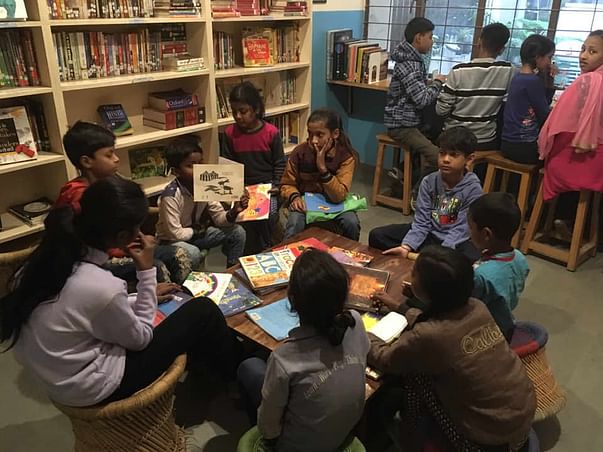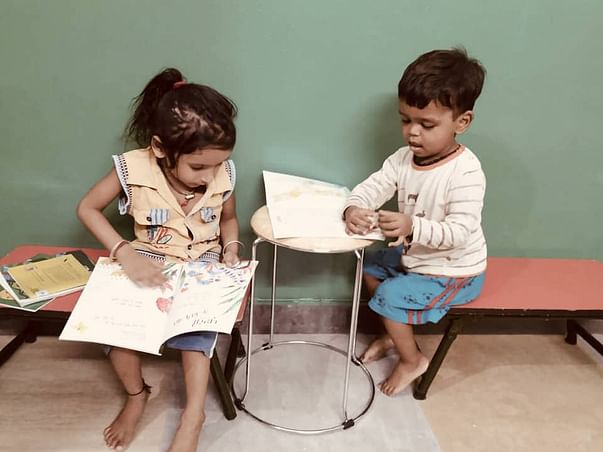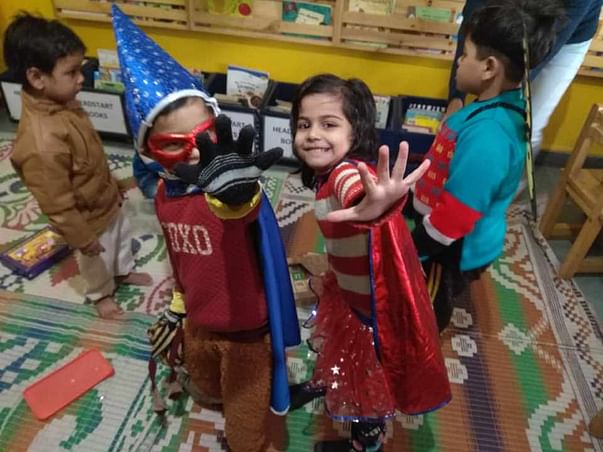The Community Library Project (TCLP) believes that a more equitable and thoughtful society is possible when everyone has access to books and literature. TCLP is a low-cost, citizen based initiative that advocates for a publicly owned, free library system that is accessible to all. We have four library branches located in urban villages in the NCR that are free and open to all. The majority of our 4000 plus library members are first generation readers. Through TCLP they have access to 30,000 books they can borrow and read at home or in the library. We have strategically placed ourselves in neighbourhoods with populations that have been denied access to books. Through our libraries we demonstrate that access can be achieved quickly and at a low cost.
Earlier this year when the entire world faced its biggest health crisis of the decade, our members did not just lose shelter, stability and food security but also lost a physical library, which had been a second home to many. The loss of libraries at a time when children are faced with multiple traumas forced us to rethink and redefine libraries.
Duniya Sabki as an online extension of TCLP’s physical library. It includes video and audio read alouds, as well as links to books, magazines and other texts that are freely available online. It is sent by Whatsapp to over 2,000 members thrice each week, and it is also available on Youtube, SoundCloud and our website.
Since access to books is not just about their availability but about a meaningful possibility of engagement with them, we also want to introduce a remote reading fluency program along with our online library project. The Reading Fluency program will focus on the needs of readers who require attention to improve their reading skills. A lot of young and curious learners are at risk of losing connection to books because of difficulty in reading and comprehension due to various factors.
Duniya Sabki as an online extension of TCLP’s physical library. It includes video and audio read alouds, as well as links to books, magazines and other texts that are freely available online. It is sent by Whatsapp to over 2,000 members thrice each week, and it is also available on Youtube, SoundCloud and our website.
Since access to books is not just about their availability but about a meaningful possibility of engagement with them, we also want to introduce a remote reading fluency program along with our online library project. The Reading Fluency program will focus on the needs of readers who require attention to improve their reading skills. A lot of young and curious learners are at risk of losing connection to books because of difficulty in reading and comprehension due to various factors.

OUR SOLUTION
1. Duniya Sabki
Through TCLP’s online library “Duniya Sabki”, we’ve delivered indispensable curriculum through online platforms. The challenge with digital read-aloud is to ensure accessibility and thus, our read-alouds are recorded in audio and video format. They are compressed to ensure minimal data requirement for all participants. Our current system is tailored for WhatsApp and Telegram.
There are approximately 2,000 members and 200 educators and individuals on Whatsapp channels receiving read-alouds, activities and stories twice a day and thrice a week.
2. Reading Fluency Program
The Reading Fluency Program is a data-driven, short term intervention designed to improve the reading fluency, comprehension, accuracy and stamina of students who are not yet proficient readers.
The Reading Fluency program will be rolled out in batches to serve students from communities around two of our library locations simultaneously. Each batch will be eight weeks long, with two weeks pre and post assessment period and six weeks of the fluency program. At the end of the year, the program would have run at least 10 batches at two of our libraries. In total, at the end of one year, there will be 160 members who will have gone through this program.

THE IMPACT
1. Duniya Sabki
a. By the end of the year, we expect to have a thousand texts (i.e., stories read aloud in audio and video format; links to books, magazines, etc.) uploaded to all our channels.
b. We will audit our online and physical libraries to ensure we are providing quality material.
c. We will continue to deliver three weekly issues of Duniya Sabki to our members via Whatsapp and hope to increase circulation to approximately 3,000 members. We will also measure growth in use of our website and Youtube channel.
2. Reading Fluency Program
a. We expect to see an average growth in reading rate between 17-20 correct words read per minute for the 132 students enrolled.
b. In English Reading Fluency, we hope to see an average gain of 12-15 correct words per minute for the 28 students enrolled.
c. We will research and pilot the use of tools designed to measure English reading skills.
d. In both programs, we expect to see improved reading stamina.
e. Students will learn many important digital skills including reading ebooks and navigating their way through online resources.
f. We also expect to strengthen our community relationships and increase parent engagement.








